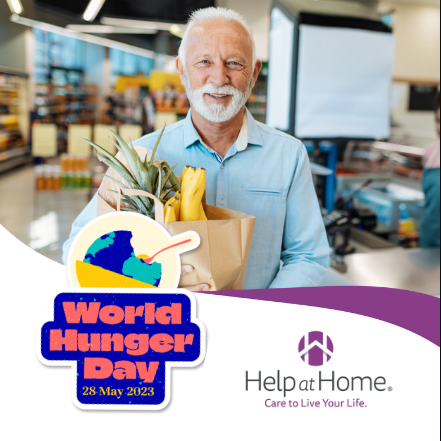Caregivers Unique Vantage Point Can Help Identify Malnutrition in Seniors

As we recognize World Food Day, we know that hunger is an unfortunate reality for many older adults. Feeding America says that more than 6 percent of senior citizens experience hunger, which can also worsen other conditions – from diabetes to depression. Most communities have programs that will help, but often senior citizens don’t know help is available or don’t feel comfortable doing online research to find options.
Caregivers have a unique vantage point in the homes of their clients. Especially those who are part of Help at Home’s Care Coordination program. The program includes observations that note important changes in clients that include food nutrition, and other medical indicators that are collected and analyzed to activate interventions to meet health care needs and deter adverse events.
For example, Donna, a caregiver in Indiana, was working with a client who was losing weight and becoming noticeably weaker. His medical care team was confused about the turn he had taken, but Donna recognized the problem – his cupboard was bare. When she offered him food, he did eat. The problem wasn’t his appetite.
Once the client was connected with a community food assistance program. The problem was identified and he soon recovered strength.
In some cases, seniors face food-related challenges that aren’t directly related to finances. Some seniors may be struggling to get to the store because they don’t drive. Some may be having cognitive challenges, which has made it difficult or dangerous to prepare food difficult. They may even be dealing with a broken stove or microwave and simply not know how to go about getting it repaired.
These are problems that at home caregivers help solve every day, while still allowing seniors to live at home.
